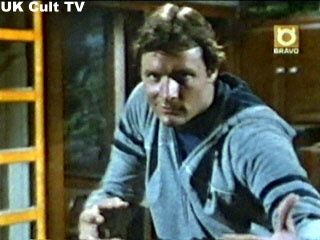

When Penn and Armstrong try to retrace his drunken steps, odd things occur. When he came to next morning, a dead blonde tumbled out of the closet he picked up the knife as a keepsake (who wouldn't?), then ran into the police.

A stranger at a bar (Elisha Cook) invited him to a party there a blonde (Virginia Dale) sang `Tootin' My Own Horn' and urged him to drink up (they slipped him a high-powered Mickey Finn). Fragments of the past start to resurface. But this time Penn is convinced he killed a woman. Armstrong's benders are frequent, to the disgust of Armstrong and Penn's fiancée Teala Loring (her guardian, `family friend' Charles Arnt, is especially sour on Penn's shenanigans). He gives them the slip and heads home where his brother-in-law, police detective Robert Armstrong, tries to straighten him out with black coffee.

There's blood on his clothes, and the police are barking questions at him. In Reginald Le Borg's Fall Guy, based on Woolrich's story `Cocaine' (though `Ethanol' would be the more apt title), Clifford Penn wakes up in a psych ward. No stranger to the lure of the bottle, he reveled in a queasy sort of masochistic guilt which he tried to exorcise through his obsessive fiction. The alcoholic blackout - and the morning after when there are dreadful questions to which memory can't supply the answers - is a recurrent theme in the work of Cornell Woolrich.


 0 kommentar(er)
0 kommentar(er)
